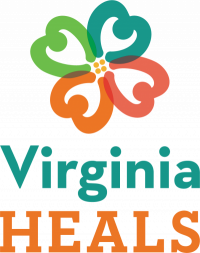National Partners
In addition to having the guidance and support of the Governor’s Trauma-Informed Leadership Team as well as a National Steering Committee made of legal and advocacy experts, Virginia’s work is supported by a number of national partners and other states with Linking Systems of Care sites who work collaboratively to support the training, technical assistance and evaluation needs of the project.
The Office for Victims of Crime (OVC), the project’s funder, is committed to enhancing the Nation’s capacity to assist crime victims and to providing leadership in changing attitudes, policies, and practices to promote justice and healing for all victims of crime. OVC distributes federal program funds, offers trainings, supports national projects, and hosts programs to help raise awareness about victims’ rights and services to the public.
The National Council of Juvenile and Family Court Judges (NCJFCJ) is the national training and technical assistance provider on this project. The NCJFCJ aims to provide communities with knowledge and skills to improve the lives of families and children who seek justice. The NCJFCJ provides training and technical assistance which contributes to the development and implementation of national policy, standards, and procedures regarding children and families and upholding the rights of victims and all family members and the safety of the community. The NCJFCJ provides training and technical assistance to demonstration sites through tools, resources, balanced approaches, and data-driven strategies, to strengthen demonstration sites’ ability to identify, intervene, and provide coordinated and effective services to youth and child victims and to identify lessons learned and develop materials to support future replication.
Illinois Criminal Justice Information Authority (LSC Demonstration Project)
The Illinois Criminal Justice Information Authority (ICJIA) was formed in 1983 as a state agency committed to improving the administration of criminal justice. ICJIA brings together leaders from the justice system and the public to assist in the identification of challenges or barriers that are present within the justice system in Illinois, in an effort to improve efficiency and outcomes for the public. The Illinois Criminal Justice Information Authority works in several categories to improve aspects of the criminal justice system: Grants Administration, Research and Analysis, Policy and Planning, and Information Systems and Technology. The 25-member board, comprised of state and local officials, as well as members of the public, sets agency priorities, tracks progress of ongoing programs, and monitors the agency’s budget. Learn more about ICJIA at http://www.icjia.state.il.us/.
Montana Board of Crime Control (LSC Demonstration Project)
Montana Board of Crime Control (MBCC) is the designated state agency that administers millions of grant dollars dedicated to preventing and addressing crime statewide. MBCC is headed by an 18-member board appointed by the Governor and represents law enforcement, criminal and juvenile justice system stakeholders, and citizens, including the first Montanans, our state’s Native Americans. The mission of MBCC is to proactively contribute to public safety, crime prevention, and victim assistance through planning, policy development, and coordination of the justice system in partnership with citizens, government, and communities. Learn more about MBCC at: www.mbcc.mt.gov.
Office of the Ohio Attorney General (LSC Demonstration Project)
The Ohio Attorney General’s Office (OAG) consists of nearly 30 distinct sections that advocate for consumers and victims of violent crime, assist the criminal justice community, provide legal counsel for state offices and agencies, and enforce state laws. The OAG offers services to protect all Ohioans, including children, families, consumers, the elderly, victims of violent crimes and veterans. The OAG has a strong history of working to strengthen systemic responses to child abuse, evident in such endeavors as the creation of a Child and Elder Abuse section, a week-long forensic interview program for multidisciplinary teams and first responders to abused children, safety summits throughout the state, initiatives to assist youth who are victims of human trafficking, and the first Ohio foster youth symposium. The OAG Foster Care Advisory Group made recommendations resulting in the introduction of key bills to serve youth, and has facilitated programs benefiting and creating increased safety for thousands of youth. For over 16 years, the OAG has collaborated to support child advocacy centers in Ohio. The OAG continues to work closely with national, state and local advocacy groups to benefit victimized children and youth in Ohio. Learn more about OAG at https://www.ohioattorneygeneral.gov/Home,
